FORT MAGSAYSAY, Philippines -- Soldiers from the Guam National Guard worked shoulder-to-shoulder with U.S. Navy corpsmen April 8 to teach combat life saver techniques to members of the Armed Forces of the Philippines as a part of Balikatan 2011.
The purpose of the training was to help teach the AFP members how to incorporate combat casualty care into their fighting tactics, said U.S. Army Sgt. Joseph Aquino Jr., a CLS instructor with the Guam Army National Guard.
"We are not teaching tactics or correcting their tactics; our duty is to incorporate tactical fire, tactical field care and tactical evacuation care so they can use it when they are out doing their patrols, and their missions," said Aquino.
The CLS techniques shown helped AFP soldiers and marines save the lives of their troops, said Philippine Army Maj. Francisco De Ramos, the medical event planner for the training.
"It is very important for every Soldier to know how to save a life," said Capt. Wilson Garces, a nurse with the Guam Army National Guard medical detachment. Garces served as the officer in charge of the training.
Death is preventable in the field if the proper training is given for preventive care, said Garces. Training servicemembers, whether from the United States or the Philippines, how to assist wounded troops in the field will help save lives during combat, she said.
AFP troops are eager to learn the new techniques that will help them save lives, said Aquino.
"While we are teaching, you can see, you can feel, that they want to acquire the knowledge; they want to grasp it," said Aquino. "When we go out to the field they perform with such enthusiasm, and when we do our after action reviews, they understand that we are not trying to criticize ... [but] it's a learning experience for all of us."
The AFP troops gather most of their medical supplies from local resources, Garces said. They are also very knowledgeable about many natural resources that can aide them in treating the injured, she added. For example, even though plastic is not readily available in the Philippines, Filipino troops adapt and use banana leaves instead of bandages, said Garces.
"We try to adjust a lot of our teaching methods to accommodate the resources do have available to them," said Garces.
"I enjoy working with AFP," said Aquino. "I learn just as much from them as they do from us."
DeRamos agreed that the opportunity to share information and to learn from each other has greatly benefited both the American and the Filipino forces.
"I am grateful to learn what the U.S. Army has had to teach us," said De Ramos. "I enjoy the knowledge they share with us and I'm grateful Balikatan happens every year."
Balikatan, meaning "shoulder-to-shoulder" in Tagalog, the official language of the Philippines, is a joint exercise between U.S. and Philippine armed forces. U.S. Army Pacific, commanded by Lt. Gen. Francis Wiercinski, directs Balikatan side-by-side with the Armed Forces of the Philippines to develop interoperability, cooperation, and the armed forces' ability to respond quickly and work together effectively to provide relief and assistance in the event of natural disasters and other crises that threaten public safety and health.
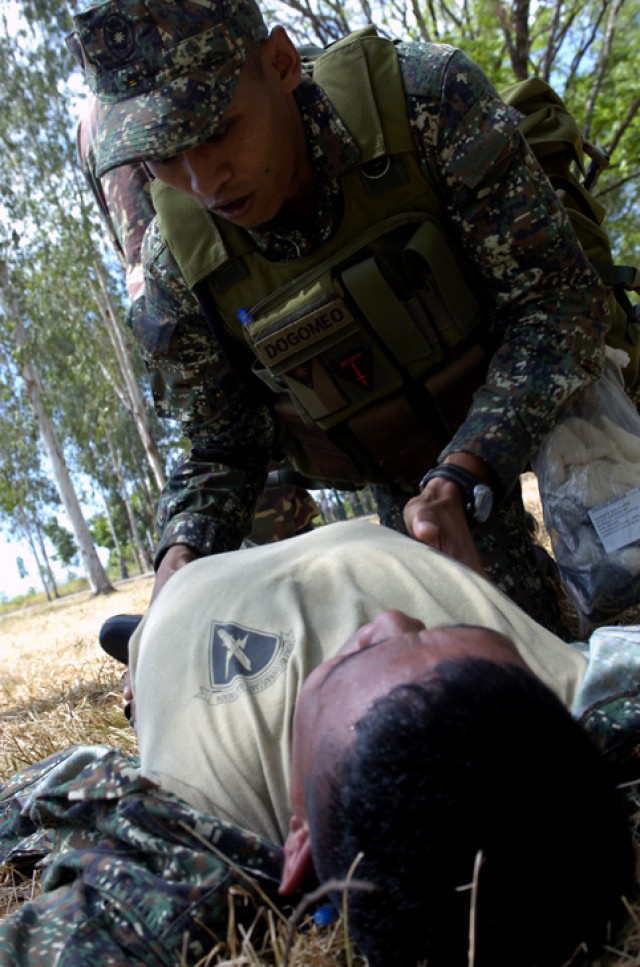

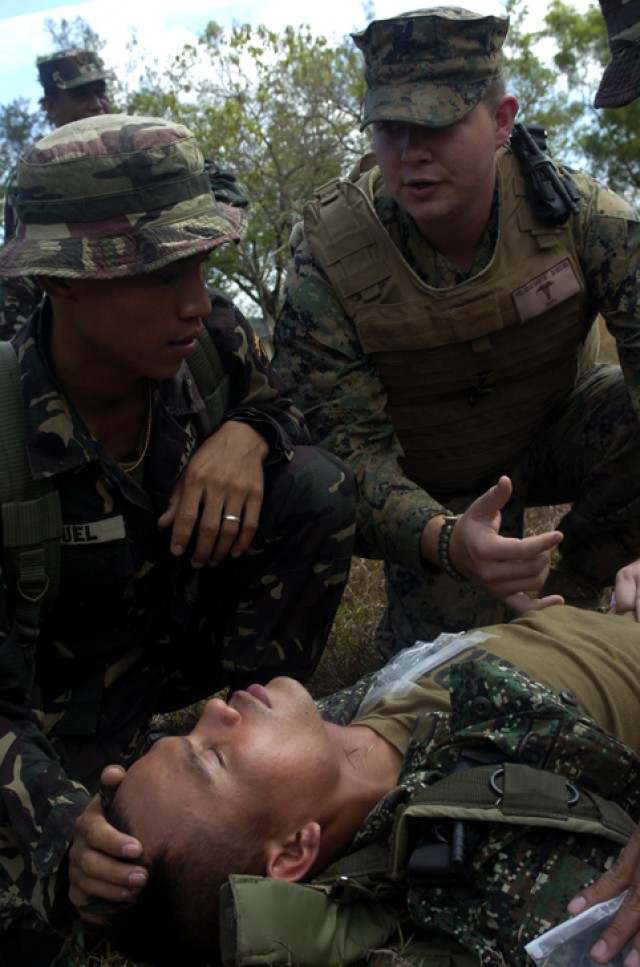
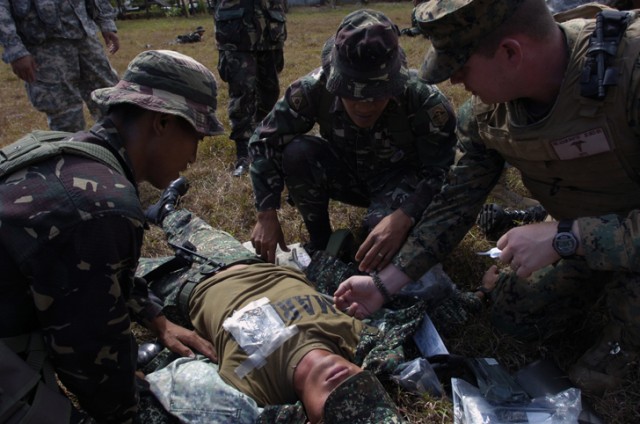
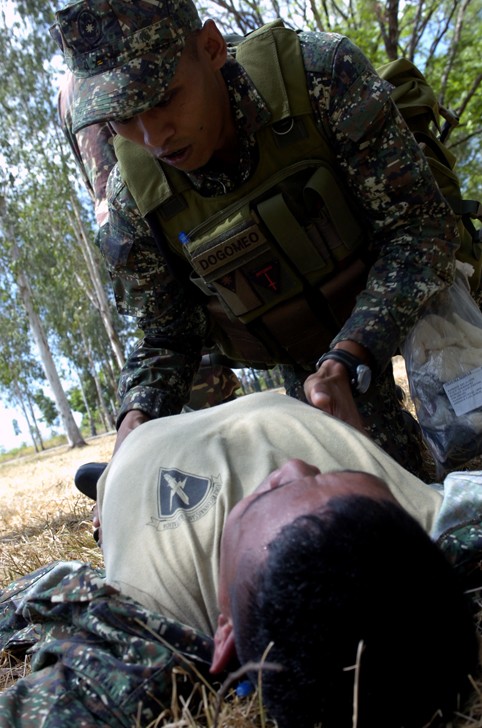
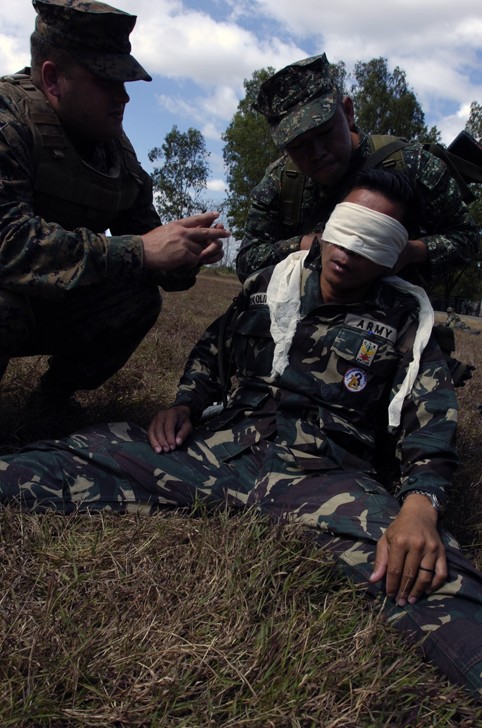
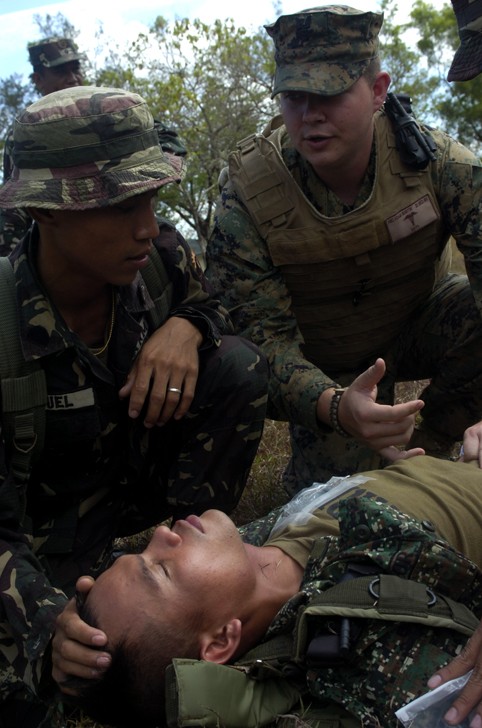
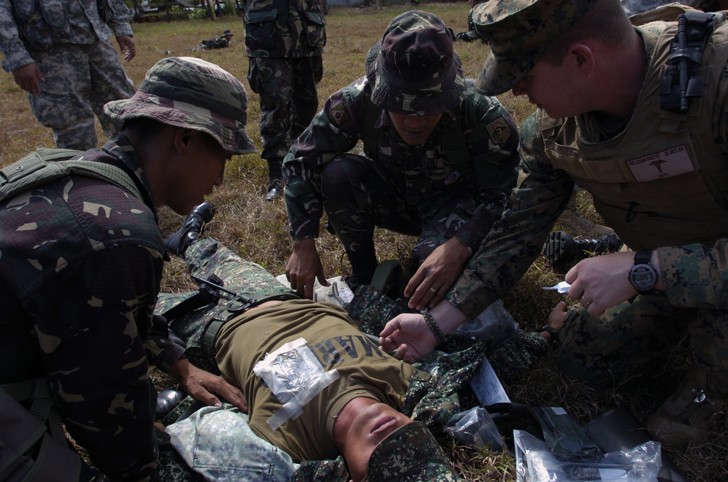
Social Sharing